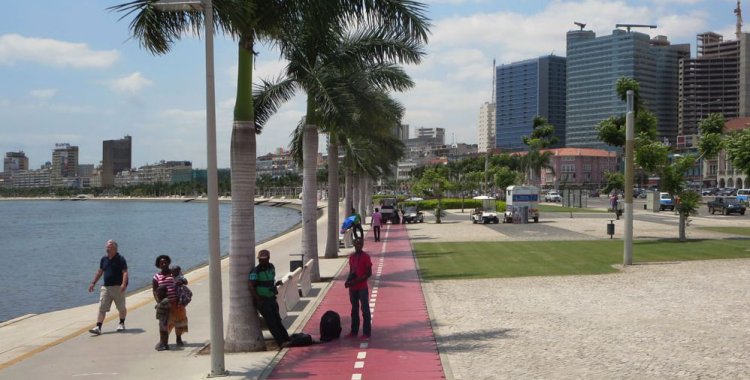According to the Regional Economic Prospects for sub-Saharan Africa, Angola's economy is expected to continue to register negative growth, contracting 1.4 percent this year, after recording a recession of 1.5 percent in 2019, but returning to growth next year, with a forecast rate of 2.6 percent of GDP.
The document, which this year is exclusively dedicated to the impacts of the covid-19 pandemic, also predicts an increase in public debt, from 109.8 percent of GDP last year to 132.2 percent this year and 124.3 percent in 2021, due to financing needs to overcome not only the fall in oil prices, but also the expenditure needed to control the covid-19 pandemic.
"Growth in oil-exporting countries is expected to fall from 1.8 percent in 2019 to -2.8 percent this year, a revision of 5.3 percentage points from October's forecasts," the document notes that Nigeria, the region's largest exporter, is expected to contract by 3.4 percent.
"Sub-Saharan Africa is facing an unprecedented economic and health crisis," reads the report on the Regional Economic Outlook for Sub-Saharan Africa.
The crisis "threatens to drive the region out of its path, reversing the encouraging progress in development of recent years," says the IMF, also warning that "by reaping a heavy toll of casualties, damaging livelihoods, and affecting business and public accounts, the crisis also threatens to slow the region's growth prospects in coming years.
Against a backdrop of even greater than usual uncertainty, the IMF anticipates that sub-Saharan Africa will experience negative growth of 1.6 per cent, the highest recorded and 5.2 percentage points below the October forecasts, and predicts that by 2021 the continent will return to growth, with GDP expanding by 4.1 per cent on average.
For the Fund, the recession forecast for sub-Saharan Africa is explained by three major factors: the containment measures, which are damaging economic activity, the effects of the slowdown in the global economy, which is also in recession this year, and the "sharp fall in the price of raw materials, especially oil, which magnifies the challenges in some of the largest resource-dependent economies, namely Angola and Nigeria".
These shocks, explains the Fund's African department, "will interact with current vulnerabilities, exacerbating the economic and social conditions in each country.
Recognizing that "the measures that countries have had to take to ensure social distancing and prevent people from moving around will certainly endanger the livelihoods of countless vulnerable people," who because of the limited social protections that exist to compensate for the loss of income, "will suffer.
For the public sector in many countries, this crisis, concludes the IMF, "could not have come at a worse time".







